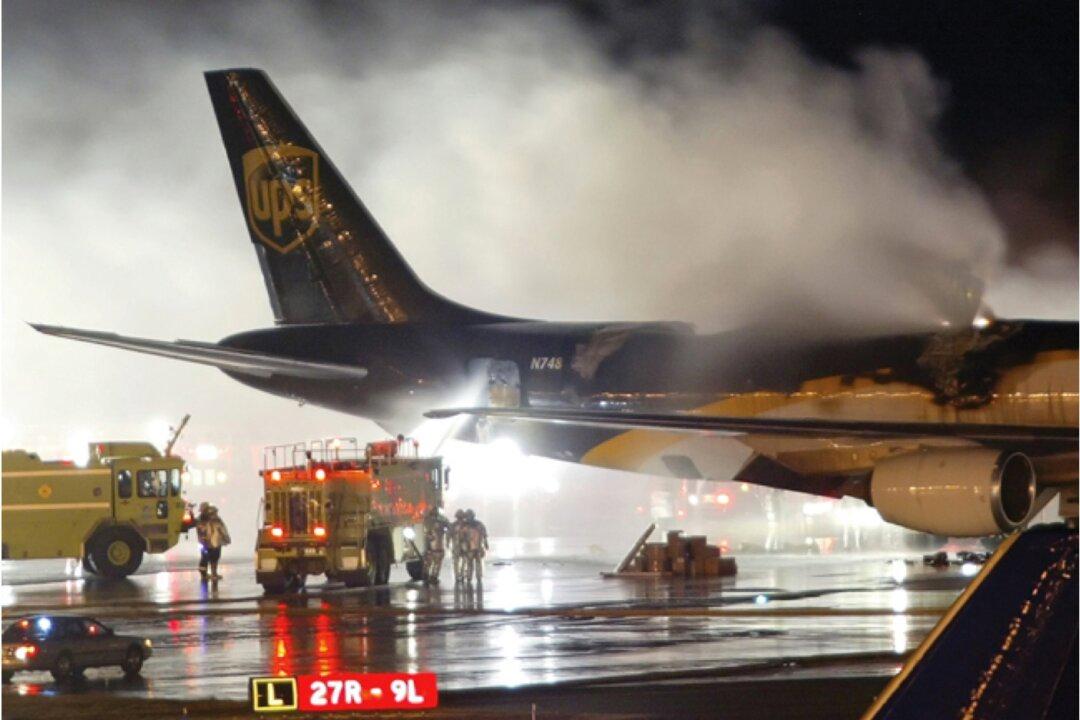Incidents triggered by lithium-ion batteries are now, on average, a weekly occurrence on U.S. flights, according to the U.S. Federal Aviation Administration (FAA), with cabin crews expressing concern over the risk.
This year, 69 lithium battery incidents involving smoke, fire, or extreme heat have occurred on U.S. flights as of Dec. 16, FAA data show.





